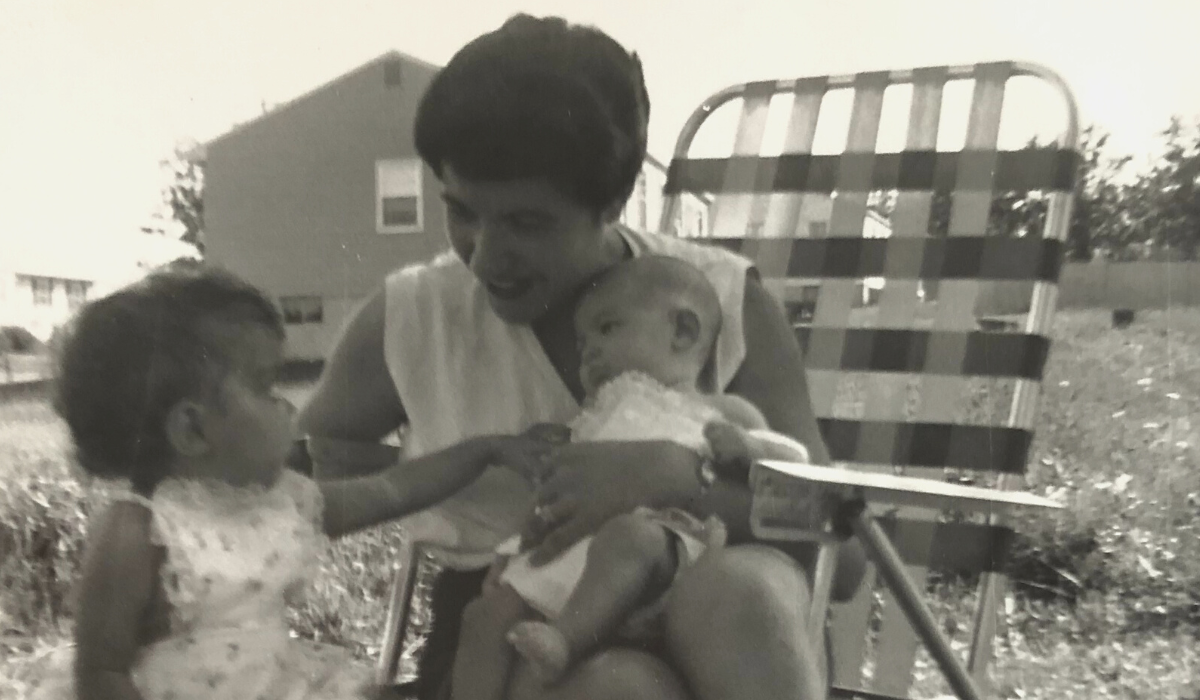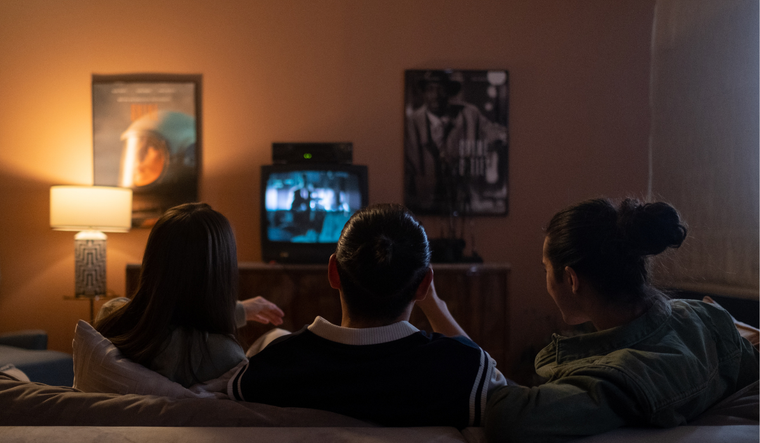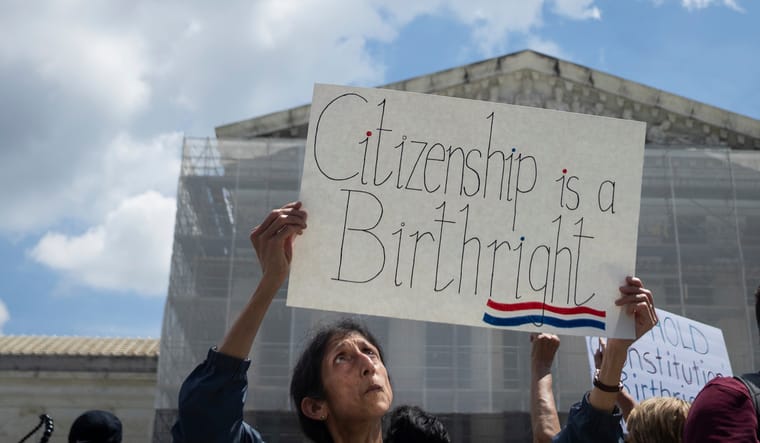50 Years After My Sister’s Death, I’m Still Grieving the Sibling That Changed My Family Forever
Some time ago, on one of those perfect New England fall days when the sky and trees are psychedelic with color, I drove the few miles from my apartment in Cambridge, Mass., to what once was the well-tended campus of the Walter E. Fernald State School in Waltham. My oldest sister Sheryl had been a Fernald resident for most of her short life before she died there in 1965 at the age of 7, physically and developmentally disabled from a rare and terminal bone disease. Almost 50 years later, as I considered writing about that little-known part of my family history, I finally wanted to see the place.
I’d had many years to visit Fernald since moving back to Boston in 2001—most while my parents were still alive and could have answered my questions about the sister I never really knew (I was 3 when she died; my older sister Linda was 5), and all while the institution was partially open and the pool in the once medically state-of-the-art Greene Building where Sheryl had lived was still in use. But I’d resisted. I told myself I wasn’t interested; that I’d spent enough of my life in the shadow of her memory. I didn’t even know exactly how old she was when she was moved there and had only asked my father to tell me about the day she died a few months before he died (it was a Tuesday in November, an election night; an infection after one of her many surgeries).
So when the impulsive urge to go there, literally and figuratively, at last overcame me, I was unprepared. I had no map; I’d done no advance research. I didn’t know that Fernald’s land and its buildings had been sold to the town for development and were all but abandoned, almost entirely fenced in with NO TRESPASS signs. But after waiting almost a lifetime to revisit a place that had formed my family—and me—I was not leaving. I found an open entrance and drove through it.
On the road that took me past empty-buildings and overgrown lawns and fields before a police cruiser pulled up behind me and directed me to leave, I was full of regret for having waited too long to make the visit. I’d grown up feeling both invisible and burdened with wanting to save my parents from their sadness, and now I realized that what ran alongside those two parts of me was a fault-line of anger, the result of a lifelong trickle of childish resentment. Why had no one tried to save me from mine?
I hadn’t been to Fernald since a family visiting day in 1964 when I was 2, an event my father captured with his Super 8 camera—the party dresses and party shoes with white lace ankle socks that Linda and I both wore; the special tricycle Sheryl sat on and pedaled with her skinny legs on the linoleum floor of the public visiting area; the nurses in their starched dresses and caps smiling and waving at the camera from behind the small wheelchairs they pushed. On certain Sunday afternoons when I was little, he would take the screen and projector out of the hall closet and my mother would close the living room drapes to darken the room. We’d sit in silence, none of us knowing what to say; our version of Family Time.
When I think about my childhood, I see how profoundly alone I felt during my toddler-to-teen years—how I didn’t understand or have words for being excluded from my parents’ grieving process—a conscious and well-intentioned choice on their part to spare Linda and me the burden they carried, my mother once told me, and likely the prevailing wisdom of the day. Their ritual of visiting Sheryl’s grave on her birthday in April for instance, two days after Linda’s birthday—whose middle name was Hope for what became obvious reasons—did not include us, and eventually the home-movie screenings stopped. Though my father talked a lot about his own grief and loss, we never really talked about Sheryl as a family.
And what would there have been to talk about really? She was diagnosed at 6 months old with osteopetrosis, a condition in which the bones don’t produce bone marrow, and institutionalized two years later; she died five years after that. I can only assume that ruminating about what she had been like those years she was so ill, who she might have become, what our family might have looked like if she were still alive, would have been unbearably painful for my parents. My best friend from second grade told me recently that she remembers coming over after school and asking me about the third gray frame of photos on the wall going upstairs to my bedroom, each containing five black-&-white studio shots of us as babies. Don’t say anything, I’d whispered when she pointed to Sheryl’s frame. My mother will get sad. Even then, I knew enough not to trespass on their grief.
I also knew that I should become as self-sufficient and independent as possible; that I shouldn’t ask for things or bother them with my comparatively insignificant problems and needs; that I should be good and well-behaved and require as little attention as possible. They had enough to deal with; why make things worse? I’d barely known Sheryl, but my world was entirely defined by her death because it defined my parents. My personality, my childhood and adult relationship with Linda, as well as all my relationships decades later—were entirely shaped by our family’s loss, by the sense I had that no matter what I accomplished or might become, it would never matter quite as much to my parents as Sheryl’s death had. Though I’ve always known they had done their absolute best as parents, I can’t help thinking how much good it could have done us all if we’d gone to therapy back then, individually, and together as a family.
But parenting was different then, in the late 1960s and early to mid 1970s, before Phil Donahue, and Oprah, and Dr. Phil; before the proliferation of self-help books and daytime television helped explain how therapy was good for mental health and not just a shameful punishment for mental illness. Our collective understanding of unprocessed grief and unresolved trauma, of depression and anxiety, was barely understood then. No one had explained it to us yet.
There’s a term now for what my sister and I experienced then —Well Sibling Syndrome—which describes children who grow up feeling overshadowed by siblings with physical or emotional special needs or by parental grief following the death of a sibling. There are also support groups to help young children cope with that differential in attention, along with the guilt, anger, and caretaking behavior that comes with the well-child role, and for adult siblings who become responsible for their special-needs siblings later in life. How incredible that an experience I’d had but could never fully articulate is now recognized; that well- and surviving siblings—glass children—are no longer forgotten.
Recently, out of curiosity, I joined an online adult-sibling meeting run by a group in Massachusetts. I’d assumed that I’d blend into the background as an observer, but when only four attendees and a moderator were present on the Zoom call on this late-summer evening when everyone seemed to be away on vacation, I offered to leave. I had no sibling I needed to take care of and find services for, and I worried about trespassing in a sacred space created for those who did.
Once a sibling, always a sibling, the moderator said, articulating the organization’s guiding philosophy and assuring me that I was welcome to stay.
So I did. I listened to their sibling stories and shared my own when invited to. Then I called my sister in Los Angeles. I told her that there were other people who had grown up just like us.
Laura Zigman is the author of five novels, including Separation Anxiety. Her sixth novel, Small World, about two sisters who move in together as adults and finally deal with the loss of their young sister in childhood, was just published. You can order Small World here.
Question from the Editor: Do you have a sibling? Share your story with them in the comments.
Please note that we may receive affiliate commissions from the sales of linked products.



